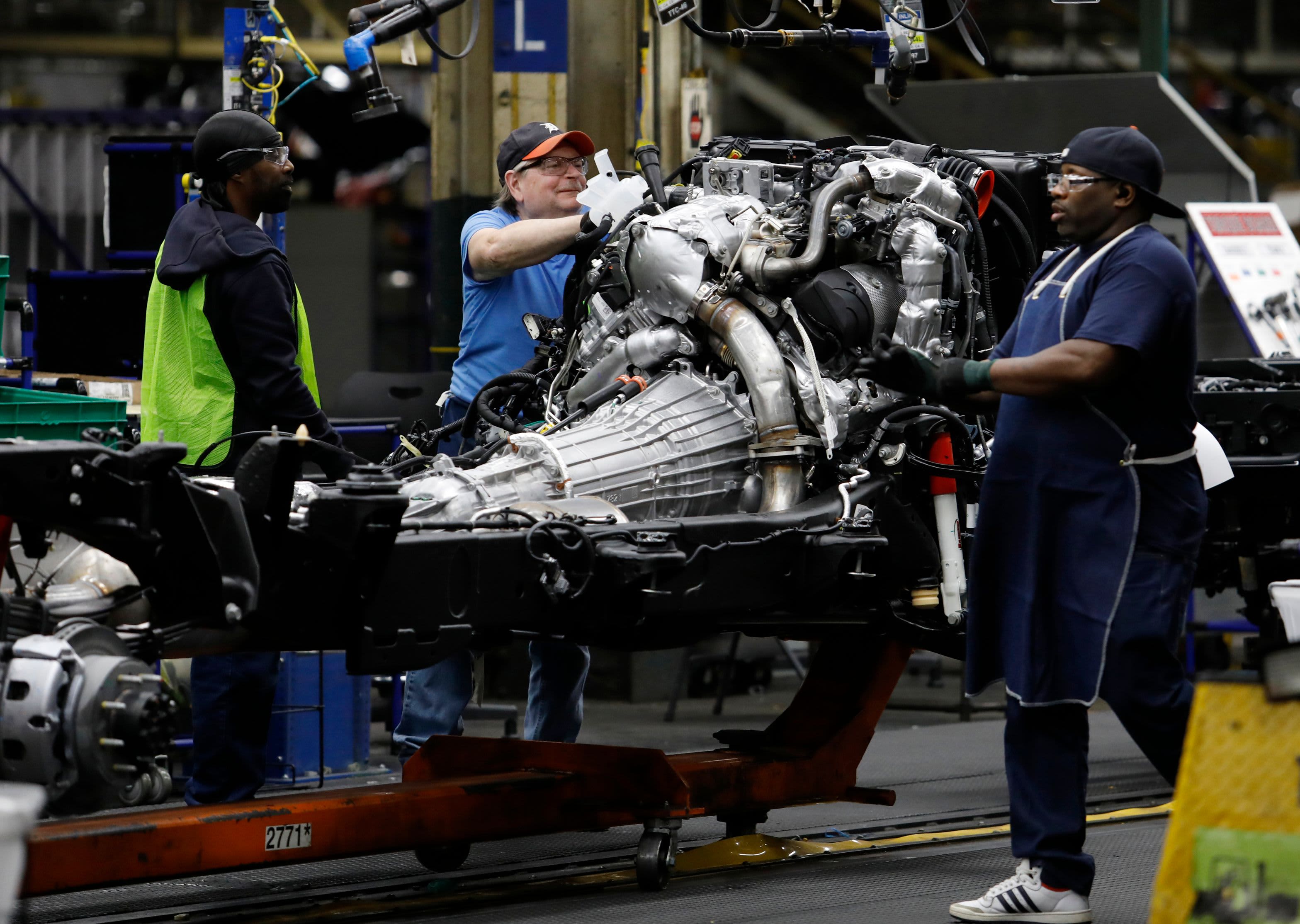Dow Futures Slide, Dollar Extends Gains As Central Banks Pledge Trillions in Coronavirus Support And Global Recession Looms
The Thursday Market Minute
- Global stocks mixed as governments and central banks around the world pledge trillions in support to cushion the economic impact of the coronavirus pandemic.
- Coronavirus cases hit 220,000 worldwide, with Europe now recording more infections than China as the death toll rises to 8,800.
- The European Central Bank launches an $820 QE program, taking its bond-buying firepower to around $1.5 trillion and steadying regional markets.
- The U.S. dollar holds at three-year highs as investors dump gold, copper and Treasuries and park the proceeds into the greenback.
- Oil rebounds from its worst day on record, which dragged crude to the lowest levels in 18 years, but analysts highlight more downside risk.
- U.S. equity futures suggest more opening bell declines on Wall Street ahead of weekly jobless claims data at 8:30 am Eastern time.
U.S. equity futures turned lower Thursday, while stocks around the world gave back earlier gains, as investors attempted to keep pace with the dizzying speed of policy changes from governments and central banks around the world as coronavirus infections accelerate and restrictions keep many major cities in lockdown.
Markets were able, however, to find a brief moment of stability last night after the European Central Bank moved to calm concerns that it would allow speculators to test the conviction of new President Christine Lagarde.
The ECB launched an $820 billion QE program that will not only last until at least the end of the year, but will also have enough flexibility to allow the Bank to buy unlimited amounts of any country's debt. Alongside last week's bond buying expansion, the new Pandemic Asset Purchase Program takes the ECB's firepower to around $1.2 trillion dollars.
With the Federal Reserve offering trillions in daily repo operations and liquidity support, and central banks around the world slashing rates and proving backstops for their respective economies, unprecedented amounts of cash and commitments are currently in place in a global economy that is now certain to slump into recession before the end of the year.
However, investors are still not only unsure as to how and when the ever-expanding coronavirus -- which has now infected more people in Europe than in China -- will slow, allowing for normal activity to resume in the world's biggest economies. Nor are they able to predict the scale of the damage to earnings, growth and in some cases the actual survival of companies that once sat as bellwethers in portfolios around the world.
That's lead to a wholesale dumping of assets such as gold, oil and copper and Treasury and corporate bonds, with most of the proceeds finding their way back into the U.S. dollar, which has risen to multi-year highs against its global peers and push other currencies, particularly the pound, to multi-decade lows.
On Wall Street, where stocks are hovering at three-year lows after wiping out all of the gains recorded since President Donald Trump inauguration in January 2917, bargain-hunters are yet to provide for stocks amid the maelstrom of coronavirus uncertainty.
Still, with Trump pushing for a $1.2 trillion 'phase 3' relief package, and the Fed standing firm in money and inter-bank lending markets, futures suggest some cautious optimism Thursday, although that bid faded as the European session wore on.
Contacts tied to the Dow Jones Industrial Average now indicate a 440 point slip while those linked to the S&P 500 are suggesting a 46 point decline for the broader benchmark.
The CBOE's key volatility gauge, known as the VIX, was marked 4.2% higher at 79.17, meaning options traders are pricing in a 79% chance that the S&P 500 will rise or fall by 79% over the next year -- around 4 points shy of the all-time high recorded in Monday's historic session.
Global oil prices, too, were bouncing from 18-year lows in early European trading following their worst single-day sell off in history Wednesday, as reports suggest the U.S. could intervene in the ongoing price war between Saudi Arabia and Russia in order to prevent large-scale damage to the domestic oil and gas industry.
Brent crude futures contracts for May delivery, the global benchmark, were last seen $1.39 higher from their Wednesday close in New York and trading at $26.27 per barrel, while WTI contracts for April delivery were marked $2.34 higher at $22.71 per barrel.
The U.S. dollar index, which tracks the greenback against a basket of six global currencies, extended gains to hit a fresh three-year high of 101.93 in overnight trade, while gold slipped 0.4% to $1,48.00 per ounce as investor liquidated positions in other markets as global stocks continue to slump.
European stocks booked modest gains after the ECB's late-Wednesday announcement, but pared that advance later in the session with the Stoxx 600 falling 0.21% in Frankfurt and Britain's FTSE 100 falling 1.1% in London as the British capital mulls an unprecedented lockdown for Europe's largest city.
Overnight in Asia, another interest rate cut from the Reserve Bank of Australia, as well as reported central bank interventions in South Korea and pledges of support from the Bank of Japan, weren't enough to halt the wave of selling that followed-through from last night's session on Wall Street.
The region-wide MSCI ex-Japan benchmark was last seen 4.02% lower heading into the final hours of trading while the Nikkei 225 closed 1.04% lower at 16,5222.83 points, the lowest since September 2016.
https://news.google.com/__i/rss/rd/articles/CBMiXWh0dHBzOi8vd3d3LnRoZXN0cmVldC5jb20vaW52ZXN0aW5nL2Rvdy1mdXR1cmVzLWhpZ2hlci1kb2xsYXItZ2FpbnMtYW1pZC1jb3JvbmF2aXJ1cy1zdGltdWx1c9IBYmh0dHBzOi8vd3d3LnRoZXN0cmVldC5jb20vLmFtcC9pbnZlc3RpbmcvZG93LWZ1dHVyZXMtaGlnaGVyLWRvbGxhci1nYWlucy1hbWlkLWNvcm9uYXZpcnVzLXN0aW11bHVz?oc=5
2020-03-19 11:43:00Z
52780672729510


